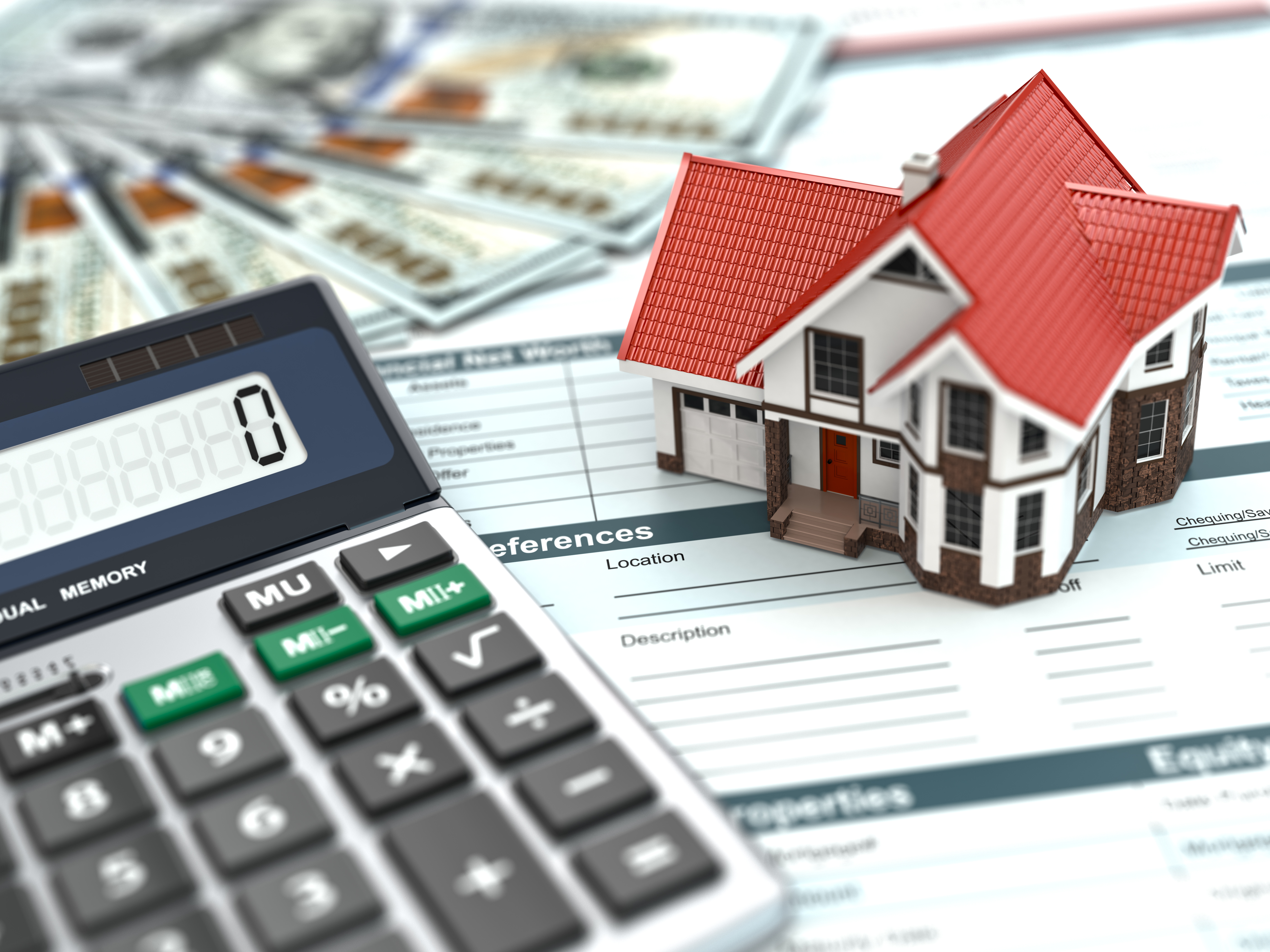FINANCIAL ADVICE | BUYING A HOME
How to Choose the Best Mortgage
Published February 11, 2019

Key Takeaways
- The most common types are 15-year and 30-year loans.
- Two different kinds of loans are conventional mortgages and government backed mortgages.
- Credit Union of Texas can help answer any questions you may have about applying for the right kind of mortgage.
What kind of home mortgage loan is the best loan for you? There's a lot of advice on the Internet touting different kinds of loans, but really it depends on who you are and what your plans are for the future. It depends on how you like to pay for things, what you can afford, and how good your credit is. The challenging thing about financing a home is there are so many variables to consider that it can be overwhelming. The good news is that we're here to help explain the different types of mortgages and how to choose the best one for you.
Lower payment now or big savings later?
You can get a home mortgage loan that you pay off in as little as five years, or as long as 30. The most common types are 15-year and 30-year loans. The longer the loan term, the lower the payments are likely to be. That's because you're spreading the payments over a longer period of time. On the other hand, that means your interest has many more years to pile up on top of the money you borrowed.
A 30-year mortgage loan on $190,000 at 4.5% interest will eventually cost about $346,573. That's almost $157,000 in interest alone.
If you reduce that to a 15-year loan, you will have only paid $252,973 for the same home. That's only about $63,000 in interest.
That's almost $100,000 difference!
On the other hand, you're paying off the house in half the time, which means your payments have to be larger. With our $190,000 home, a 30-year mortgage loan will cost around $963 before factoring in extra costs, like property taxes. If you pay that off in 15 years, it will cost you more like $1,400 a month, plus extra costs.
You might get a break because most lenders give home buyers a lower interest rate for 15-year loans than for 30-year loans. The amount varies but it can often be between 1% and .5% lower. That might not sound like a lot, but it can actually mean a difference of several thousands of dollars.
Many people who get 30-year mortgages reduce their interest costs by paying extra every month. That can make a huge difference, but it won't bring down your interest rate, unlike getting a shorter loan term.
The Basic Types of Mortgages
|
Loan Type |
Interest |
Pros |
Cons |
Best for |
|
|---|---|---|---|---|---|
|
30-year Fixed |
Stays the same for the life of the loan |
Low interest rates Down payment of minimum 5% is typically recommended |
Pay considerably more in interest over the life of the loan PMI required under 20% down |
People who have less than 20% down payment People who need to save money on their mortgage |
|
|
15-year Fixed |
Stays the same for the life of the loan |
Often has lower rates than 30-year fixed Loan paid off more quickly, far less interest paid overall |
Higher monthly payments due to shorter loan term PMI required under 20% down |
People who can afford higher payments and want to save money on interest |
|
|
1- to 5-year Adjustable Rate Mortgages |
Rate remains steady for initial period and then fluctuates annually with national prime rate |
Often very low initial interest rate |
Rate may rise significantly after initial period, raising monthly payments. PMI required under 20% down |
People who don't plan to be in their homes long, or who plan to sell or refinance after initial period |
|
|
Veterans Administration |
Can be either adjustable or fixed |
Can offer 0% down payment options |
Interest may be higher than conventional loans. |
Veterans or their spouses who need a mortgage with little or no down payment |
|
|
Federal Housing Authority |
Can be either adjustable or fixed |
Can offer as low as 3.5% down payment options |
Interest higher than for conventional loans |
Borrowers who have lower credit scores |
Want steady payments, or are you willing to gamble?
A fixed interest rate means once a lender agrees to a certain rate of interest, it stays at that rate for the whole term of the mortgage loan. Interest rates for other loans and around the country might go up and down, yours will stay the same. That means that your monthly payment for your principal and interest will stay the same for the whole time you're paying off the mortgage—although the payment might change if property taxes go up or down.
Mortgage rates have been at historic lows for years. Since the 2008 economic downturn, mortgage rates dropped from around 6% to between 3%-to-4%. But in late 2018 they began to rise. A lot of factors in the economy can impact whether the interest rates go up or down.
Adjustable interest rates adjust to the economy. If you have an adjustable rate, the interest on your home might be 3.69% when you start the loan, but it may go up or down with the national interest rates. When the interest rates rise, so does your monthly payment. Usually they adjust the rates once a year. Many adjustable rate mortgages (ARM) start with a fixed rate for a few years and adjust yearly after that.
Adjustable rate mortgages often have lower interest rates than loans with fixed rates because there's a better chance—over time—that interest rates will rise and the lender will be able to raise the loan's interest rate when they do that. Home buyers must be careful not to buy homes using ARMs that they can only afford if the interest rates don't rise. Homeowners have found themselves unable to keep up when interest rates rose and their payment increased.
The safest time to get ARMs is when the rates are higher than the historical average.
Conventional Mortgages vs. Government-Backed Mortgages
Two different kinds of loans are conventional mortgages and government backed mortgages. Most home buyers get conventional mortgages which tend to be a less expensive option for people with good credit and money for a down payment.
Conventional loans often conform to guidelines put forth by the Federal Housing Administration, such as:
- If your FICO® score is at least 580 = you must give at least a 3.5% down payment. (The actual amount will be set by the lender)
- If your FICO® score is between 500 and 579 = you must have a 10% down payment.
- MIP (Mortgage Insurance Premium) is required. This is an insurance policy for the lender that you pay on top of the cost of the mortgage when you don't have 20% down payment to ensure that they will be financially covered for taking a risk on you.
- Debt-to-Income Ratio must be less than 43%, however exceptions can be made as high as 50% with strong compensating factors like high credit and/or lots of cash reserves. This is how much debt you have compared to how much income you have.
- The home must be the borrower's primary residence.
- Borrower must have steady income and proof of employment.
There are several government-insured or backed loan programs for specific people. Some of these loans don't require any down payment at all.
Federal Housing Administration Loans only require a 3.5% down payment and are available to people who have lower credit scores than conventional loans permit. They have a limit on how much the borrower can borrow, which varies by state. FHA loans tend to be more expensive than conventional loans for borrowers with good credit and a down payment between 10% and 15%.
Veteran's Administration or VA Loans are for people who have served in the military and their families.
United States Department of Agriculture Home mortgage loans are generally for people who are in a low-income bracket and want to buy homes in designated rural areas.
Interest-only mortgage loans are loans in which the borrower only has to pay the interest on the mortgage for a period of time, then pays the principal in a lump sum at a later date. Some people plan to refinance or sell the home before the lump sum comes due. These loans can be extremely risky since people don't know what the future—or the housing market—will bring.
CUTX can help you decide
The best loan for you is the one that will let you buy a home that will meet your needs within your means. Home ownership should be a positive choice rather than a giant stressful risk. Credit Union of Texas can help answer any questions you may have about applying for the right kind of mortgage. Contact a CUTX lender today to begin exploring your options.




